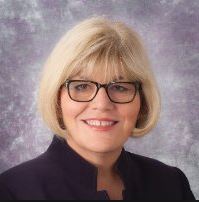Karen Shaffer-Platt serves as Vice-President of Revenue Cycle/Patient Concierge Services for the University of Pittsburgh Medical Center.
On Friday, September 22, Ms. Shaffer-Platt will speak on a panel at Becker's Hospital Review 3rd Annual Health IT + Revenue Cycle Conference. As part of an ongoing series, Becker's is talking to healthcare leaders who plan to speak at the conference, which will take place September 21 through September 23 in Chicago.
To learn more about the conference and Ms. Shaffer-Platt's session, click here.
Question: Please share the state of revenue cycle management at your organization. What is your payer mix? What about your revenue cycle is working well, what needs improvement and what do you find yourself spending more time on?
Karen Shaffer-Platt: With daily cash collections approximating $18M, a vibrant RCM factory serves as a lifeblood for UPMC. Our current hospital payer mix is approximately 46% Commercial, 35% Medicare, and 14% Medicaid, with the remainder being all others. As patients are increasingly taking an active role in their health care, these changing consumer expectations require health care organizations to rapidly adapt to an increasingly personalized, retail-like experience. UPMC recently embarked upon an enterprise initiative to begin a rapid and radical transformation of the UPMC consumer-centric experience. We also continuously look to find efficiencies in all processes from self-service options for patients to optimal staffing models supporting volume-based staffing.
Q: How have alternative payment models affected your line of work? Can you share 3 specific steps, if any, has your organization taken to adapt to bundles and ACO payments?
KS: The process for the alternative payment models we have in place require a significant amount of manual intervention. Three steps/controls we have identified have been to:
1. Create Unique Plan Code to identify the cases
2. Net A/R to expected Reimbursement
3. Obtain Payer Contacts for issue resolutions/questions
Q: Percent-wise, roughly how much of your revenue cycle is automated? Do you plan to maintain that percent or increase in the next 1-2 years? What effects have you seen from automation, good or bad?
KS: On the hospital side we average between 10-15% of our claims stopping prior to claim submission for manual intervention. The majority of the work is around coding edits. While we do see challenges in easily eliminating coding edits as Medicare traditionally has become stricter year after year, we do believe we can maintain or even improve these rates by being able to remove certain edits while improving our eligibility edits.
Q: What is one investment you've made in RCM that has surprised you in terms of ROI? How so?
KS: Technology investments into workflow solutions in the pre-arrival arena have been a great lift. While not only having so far proven to be a highly customizable workflow solution that we can adapt as business needs arise, having full integration with existing scoring and price estimate tools will prove to be even more beneficial in the coming months.


